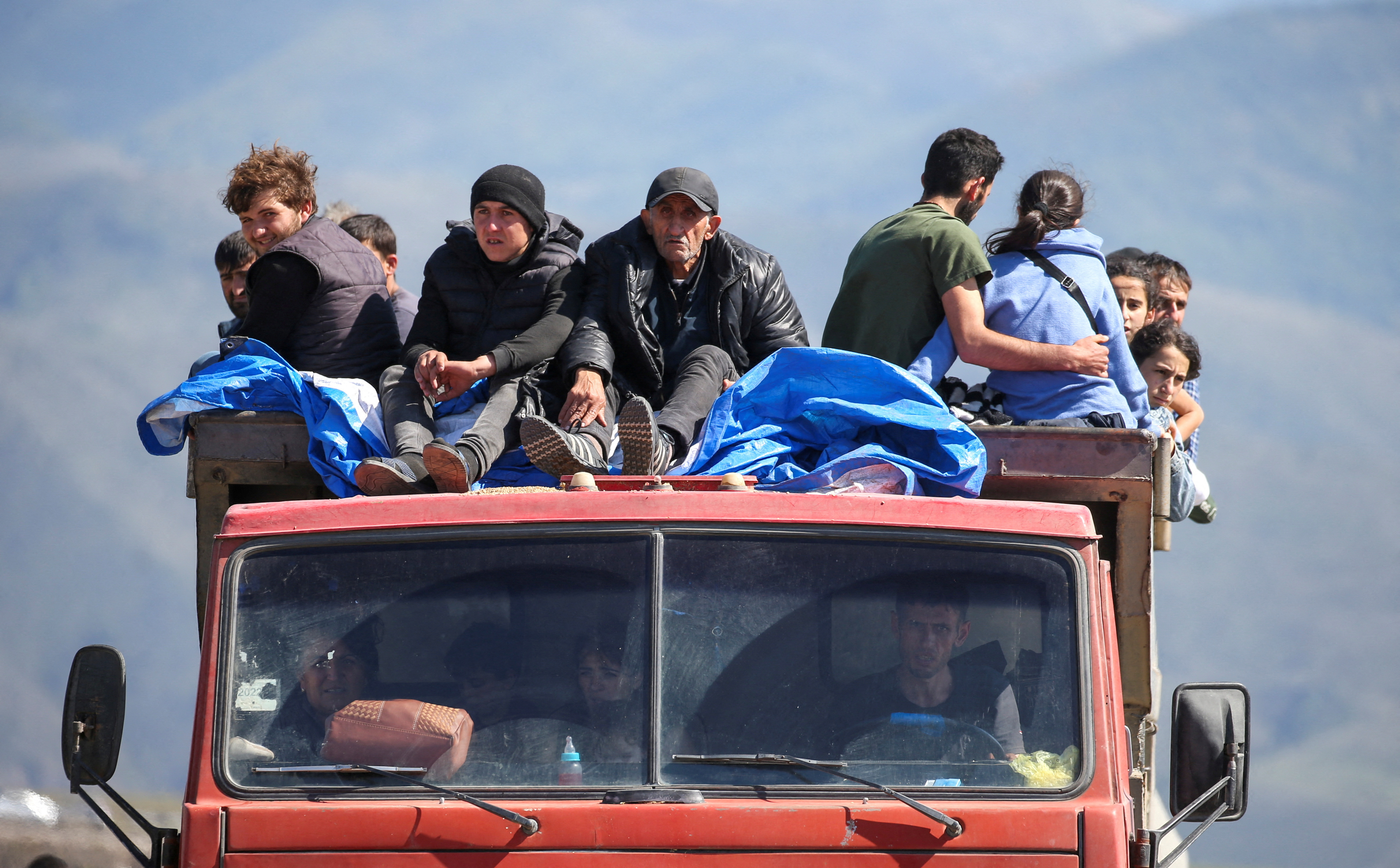More than half the 120,000 ethnic Armenians of Nagorno-Karabakh have left in less than four days after Azerbaijan seized control of the mountain enclave where they had managed to defend their autonomy for three decades.
Azerbaijan’s lightning military operation triggered an exodus unparalleled in the South Caucasus since the war in which Armenians took over the territory as the Soviet Union broke up, and hundreds of thousands of Azeris fled.
Azerbaijan says it is prepared to respect ethnic Armenian rights as it reabsorbs the region, but with a history burdened by folk memories of alleged genocide, ethnic cleansing, pogroms and at least two wars, the Armenians are fleeing in fear.
By Thursday morning, Yerevan said 65,036 people had crossed into neighbouring Armenia, most driving for over 24 hours with their belongings down a choked mountain corridor through Azerbaijan.
“This is one of the darkest pages of Armenian history,” said Father David, a 33-year-old Armenian priest who came to the border to provide spiritual support for those fleeing. “The whole of Armenian history is full of hardships.”
Many of the Armenians in heavily laden cars, trucks, buses and even tractors spoke of spending cold mountain nights with hunger and fear churning in their stomachs.
In Soviet times, Nagorno-Karabakh enjoyed autonomy within the Soviet republic of Azerbaijan.
But as the Soviet Union crumbled the First Karabakh War erupted. About 30,000 people were killed between 1988 and 1994 and more than a million people displaced, more than half of them Azeris. In 2020, Azerbaijan struck back, reclaiming swathes of land in and around Karabakh in a 44-day war, and setting the stage for last week’s conquest.
FORMER KARABAKH LEADER ARRESTED
Azerbaijan on Wednesday arrested Ruben Vardanyan, a banker and philanthropist who headed Karabakh’s separatist government between November 2022 and February 2023. On Thursday it said he had bee charged with illegally crossing Azerbaijan’s border.
Its victory and the surrender of Karabakh’s weapons change the contours of the South Caucasus, where Russia, the United States, Turkey and Iran all vie for influence.
Armenia has blamed its ally Russia, preoccupied with the war in Ukraine, for not doing anything to help. But Moscow says Armenian Prime Minister Nikol Pashinyan has only himself to blame, and should not have sought closer ties with the West.
The United States, home to the world’s second largest Armenian diaspora, has courted Armenia with words and humanitarian aid but criticised Azerbaijan, which has close relations with Turkey.
Samantha Power, head of the U.S. Agency for International Development (USAID), met Azerbaijani President Ilham Aliyev in Baku on Wednesday after visiting Armenia.
Power “stressed the urgency of allowing unhindered humanitarian access to Nagorno-Karabakh, including those stuck in the Lachin Corridor, and the urgent need for expanded access for humanitarian groups”, a spokesperson said.
“The Azerbaijani president noted that the civilian population had not been harmed during the anti-terrorist measures, and only illegal Armenian armed formations and military facilities had been targeted,” Azerbaijan said.
“Touching upon the rights of Armenian residents living in the Karabakh region, President Ilham Aliyev emphasized that, like other ethnic minorities living in Azerbaijan, their rights would be ensured within the framework of the country’s legislation and international obligations.”







Click here to change your cookie preferences